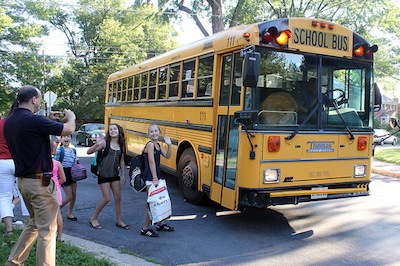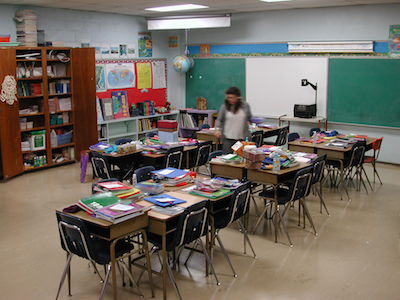
Increase Your Chances Of Getting A Scholarship
Graduating from college is a huge accomplishment. However, many students graduate with substantial debt from both college loans and credit cards – and some of those students go on to accrue even more debt with graduate study. Make no mistake about it, college is expensive. But, not all students graduate

Scholarships: Where to Look and How to Get Them
As the cost of an education in the United States continues to increase, it is becoming more important for parents and students to consider alternatives to taking out bigger loans to pay for school. Though they are highly sought after, scholarships can help offset the price. With a little work and

Farm to School: Sourcing School Meals Locally
Education is more than what happens in the classroom. Students are learning about the world they live in, how to interact with each other, and how to stay healthy. People are becoming more environmentally aware and conscious of what children put in their bodies, particularly as awareness about obesity has

College: Considering the Cost Beyond Tuition
When you’re planning for the cost of attending college, the expenses don’t stop at tuition. There is rent to pay, books to buy, the price tag of any athletics or activities you choose to pursue and more. Some fees depend on the university you attend, while others might be impacted by

Are Smaller Classes Better for Students?
Though the debate over class size is ongoing, research, in general, indicates that students tend to learn better in smaller environments. Yet, as state budgets are cut, class sizes are only increasing. Why Smaller Class Sizes? Since the 1970s, research has suggested that smaller class sizes lead to higher academic

Is Higher Education in the United States Unaffordable?
Most students go to college so they can get a good job once they graduate. If an individual wants to succeed in today’s economy and become part of the workforce, a diploma is increasingly necessary. Yet, the cost of enrolling in higher education is only increasing, and students are graduating with

Teaching the Arts in Schools: Why is it Important?
As school budgets are cut and with the emphasis on math and science, many schools are forced to trim away at their art curriculum. The arts may seem like a fun break from learning and unimportant to student success in our technological world, but the arts play a very important role in the development

What are the Different Kinds of Colleges in the U.S.?
Each country has its own model for education. In the United States there are a few types of colleges: public, private and for-profit. Within those categories, there are different kinds of colleges such as two- or four- year universities or online schools. Private Many colleges or universities are privately owned. Some have

Adult Education: What Are The Benefits?
Adult education has always been an important part of the education system in the United States. States first took the lead in adult education, and the first federal legislation supporting these programs was passed in 1964. Since, the government has worked with states to continue expanding opportunities for adults who wish to

Why Do High Schools Need College Counselors?
Many students aspire to attend college, but not all of them are ready for the challenges of applying, attending or paying for postsecondary education. At a time when getting into college seems more difficult each year, there is a shortage of college and guidance counselors due to budget cuts and other

Does the U.S. Have a High School Dropout Crisis?
In today’s world, dropping out of high school is a sure way to end your ability to make a secure living. In 2009, individuals over 18 years old who had not completed high school or earned their General Educational Certificate (GED) made approximately $20,241 annually –$10,386 less than a high school graduate and less than

Does Parent Involvement in School Help Students Succeed?
If you have a child attending school, getting involved in his or her learning is a must. Research by various groups over the past 3 decades points to the positive impact a parent’s relationship with school has on a child. From research groups, including the National Coalition for Parent Involvement (NCPI), to

Should Cell Phones Be Allowed In The Classroom?
Cell phones are everywhere and have undeniably become an integral part of everyday life. Everyone from teens to seniors seems to have one on their person — even toddlers know how to use them for games and entertainment! Just a few years ago, cell phones were simply used to speak with someone.

Magnet Schools: What Are They?
Magnet schools came into being at the end of the 1960s and early in the 1970s as an alternative to busing children to school during the desegregation movement. The intent was to combine various cultural and ethnic groups from one area together in one school. This purpose has since changed.
